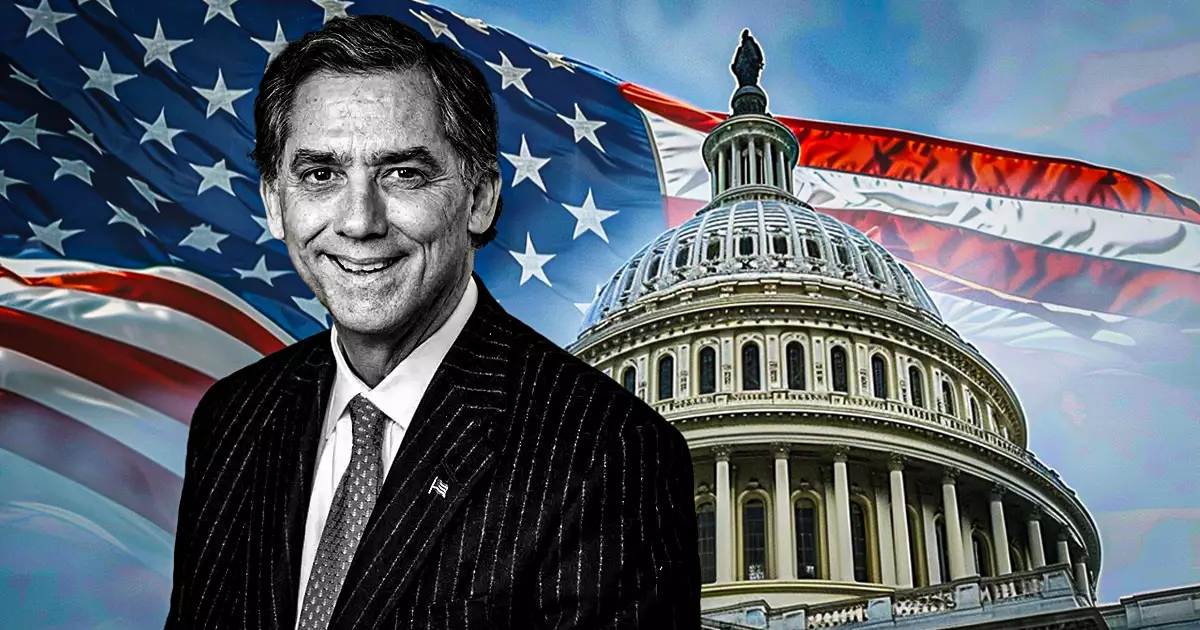In a pivotal moment for the evolving landscape of digital assets in the United States, Congressman French Hill has taken on the role of chair of the House Financial Services Committee. His recent dialogue with CNBC serves as an articulate outline of his strategic priorities aimed at clarifying and reforming the regulatory framework surrounding cryptocurrencies. Hill’s dedication to eliminating the confusion that has long haunted the crypto industry is not merely a reaction to market pressures but a calculated effort to foster growth and innovation.
Hill’s call for a well-defined regulatory structure represents an essential shift in how legislators view the burgeoning crypto sector. With the industry’s market capitalization exceeding $1 trillion, the need for a cohesive regulatory approach is more urgent than ever. Companies and investors have been operating in a gray area fraught with uncertainty, primarily due to the lack of a standardized framework for compliance and governance. Hill asserts that establishing such a framework is a top priority, setting the stage for a marketplace that prioritizes both innovation and consumer protection.
Central to Hill’s legislative agenda is the simplification of market oversight and reassessment of existing banking restrictions that impede the growth of tech startups and the financial services sector. By facilitating easier pathways for companies to launch initial public offerings (IPOs), Hill seeks to invigorate public markets. The emphasis on reducing regulatory burdens aligns with the broader goal of promoting entrepreneurship and supporting emerging technologies.
This initiative draws inspiration from the Financial Innovation and Technology for the 21st Century Act (FIT 21), which, while stalled in the Senate due to concerns over its impact on market stability, lays the groundwork for Hill’s thrust toward legislative clarity. His insistence on the urgency of progressing this bill underscores its potential not only for enabling crypto businesses to flourish but also for ensuring that American investors are safeguarded within a clear regulatory framework.
One of the more controversial ideas that has surfaced is the establishment of a national Bitcoin reserve, which has garnered support from various corners, including state legislators in Texas and Wyoming. While Senator Cynthia Lummis and President-elect Donald Trump advocate for such federal initiatives, Hill maintains a more cautious stance. His concerns regarding market volatility and the implications of federal overreach highlight an essential dialogue within policymakers about the balance between innovation and prudent governance.
Hill’s approach reflects an understanding that while the allure of establishing a federal Bitcoin reserve may seem attractive for bolstering the U.S. financial strategy, the potential risks must be carefully weighed. As he navigates through these complex discussions, his voice will prove crucial in shaping the future of crypto regulations.
As Congressman Hill assumes leadership of the House Financial Services Committee, his multifaceted agenda has the potential to significantly influence the regulatory environment surrounding cryptocurrencies and the financial landscape at large. His commitment to innovation and clarity could place the U.S. at the forefront of a global crypto ecosystem, fostering an environment where both businesses and consumers can thrive. The path forward, while fraught with challenges, presents an opportunity for constructive dialogue and practical solutions designed to bring much-needed clarity and stability to the rapidly evolving world of digital finance.

